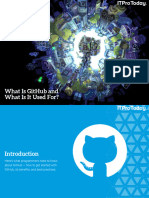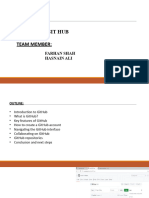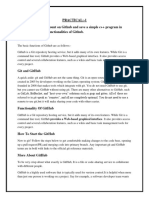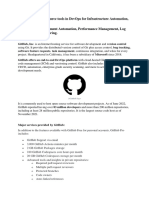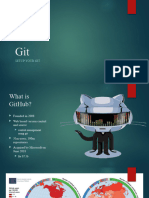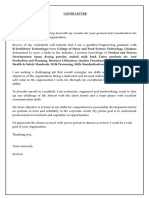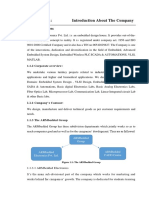0% found this document useful (0 votes)
21 views8 pagesGitHub The Collaborative Coding Platform
Uploaded by
ashir5991079Copyright
© © All Rights Reserved
We take content rights seriously. If you suspect this is your content, claim it here.
Available Formats
Download as PPTX, PDF, TXT or read online on Scribd
0% found this document useful (0 votes)
21 views8 pagesGitHub The Collaborative Coding Platform
Uploaded by
ashir5991079Copyright
© © All Rights Reserved
We take content rights seriously. If you suspect this is your content, claim it here.
Available Formats
Download as PPTX, PDF, TXT or read online on Scribd
/ 8













